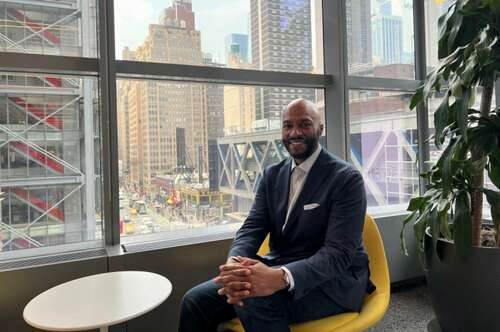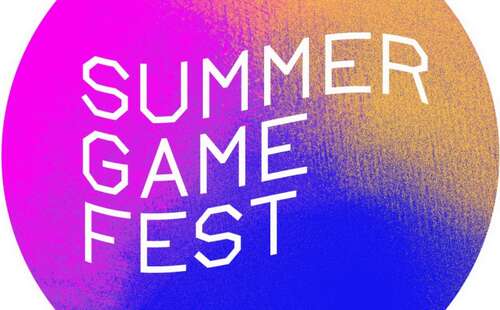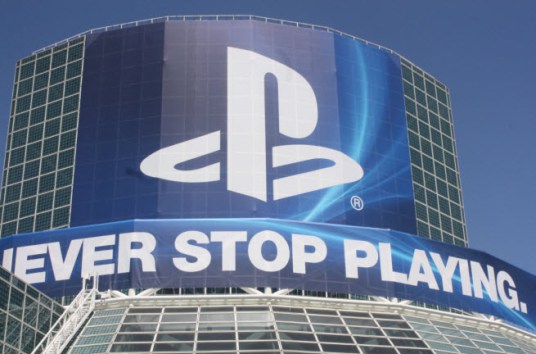The Entertainment Software Association finally pulled the plug on the Electronic Entertainment Expo yesterday after years of trying to hold the center of gaming events.
The U.S. trade association decided the game industry had evolved and maintain had waned for the show, which typically drew crowds of 70,000 to Los Angeles in June to hear about the latest games and celebrate gaming itself.
The pandemic took its toll on physical game events, the press and retail segments that held the show together became weaker and even PAX organizer Reedpop failed to revive E3.
Big companies such as Electronic Arts, Sony and others broke off to create their own online and physical events and finally even Nintendo withdrew. The self-interests of each game company were no longer aligned with E3, and Geoff Keighley’s Summer Game Fest stole many of the online eyeballs.
The result was not unexpected, and the Washington Post reported the death of E3 yesterday. I had a chance to interview Stanley Pierre-Louis, CEO of the ESA, yesterday about the demise of E3. I have extremely fond memories of going to E3 since the first year it was in Atlanta — which means I went to the event for more than two decades — and I started our conversation with Pierre-Louis’ own memories.
Here’s an edited transcript of our interview.

GamesBeat: I see a lot of people on social today talking about E3 memories. I don’t know if you have a favorite memory.
Stanley Pierre-Louis: I very much enjoyed walking the floor my first year at ESA. Just taking in the sights and sounds of the event. But also seeing the people who make up the industry at its core, both the creators and the people who relish the games. That’s the relationship that our industry has, that’s very different from many other industries, including other entertainment industries. There’s a real feeling of kinship, not just between the brand and the players, but between the content and the players. It’s very personal.
It’s because the people who make games also love what they make. They have a reverence for the content they create, the characters they build, the universes they create. There’s a word that companies use: “Delight the audience.” Really make people excited. Games are about having fun and engaging people in another world. It has the impact of bringing people together. We’ve talked about bringing them solace. The connection that was important during COVID, and at all times. But at core, games are entertainment. They’re about having fun and surprising people, about what we can do together.
GamesBeat: For me it was being able to interview people who were normally inaccessible. They were always happy to talk at E3.
Pierre-Louis: That’s another distinguishing factor our industry has. The titans of industry and the great creators and the innovators walked the floor. They’re geeking out on what other people are doing as well. E3 provided them with that space in a very unique way. Our industry is better for it. But we’ve also grown and have an opportunity to extend what we do much more broadly. E3 helped catapult our industry’s appreciation by others in a great way.
The mainstream press and non-video game fans are commenting on video games. E3 drew people in to grasp the scope and depth of what video games do. As they learned more, games gained more respect. Now they’re a leading form of entertainment.
GamesBeat: What I hear today is that everyone has all these favorite memories, and they think it’s a shame that it can’t keep going. I assume you tried many different ideas here. How did it come to this point?
Pierre-Louis: Video game companies now have a variety of outlets to advocate their games, to present fans to new worlds, to experiment with new kinds of characters and experiences. We see it every week. Last week we had the rollout of Epic’s metaverse. If you go each week before that, there’s a great game that got released or a new opportunity for people to engage with a video game world that they didn’t know about or decided to examine again. Even if you go back to Fortnite, the release of the original map is their largest-selling game ever.
Video game companies have new and exciting ways to reach people. They can do it on a timetable that meets their business needs. This doesn’t take away from the need to bring people together. We’ll think about exploring ways to bring everyone together to tell a story about the industry. I don’t know what form that will take. We’re spending time thinking through what that narrative is, because there’s a nice moment for the industry to reshape and refashion how the public thinks about games. But it’s early thinking. There are exciting opportunities for our industry. When you look at the marketing and business needs, our companies have shown that there are many outlets they can examine and exploit for the benefit of things.
GamesBeat: As an association leader, do you wish there were more of an “all for one, one for all” sort of attitude?
Pierre-Louis: A trade association works best when it’s aligned with member needs and goals. If this is where the industry feels it needs to be, then that’s the best place for us as an association to follow and to direct through. There are other opportunities we will have to continue our leadership.
Certainly, on the advocacy front we’ve spent our entire existence on ensuring that people see the value in games, first as protected speech, but also as artistic expression, and now as a societal benefit, because of the positive impact we have on culture, on society, on the economy. We’re always looking for ways to advance that with policy makers, with leading thinkers, with the press, you name it. We want to make sure games get their due respect. We’ve seen tremendous growth on all those fronts over the past few years. We want to be where our members want us to be, in the end.

GamesBeat: Was it hard to counter any of the competition? Geoff Keighley seems to have amassed large audiences online for the Game Awards. That became a force to be reckoned with.
Pierre-Louis: I don’t think there’s any one thing you can point to for this decision. Overall, companies having more and different outlets became critical. What distinguished E3 from every other video game event globally is the attention it received, both inside the industry and beyond the industry. No other industry event draws attention from the non-game world, whether it’s industry or fans. E3 broke through. We want to make sure people remain excited, both inside and outside the industry, about what games furnish, what they do for us, and how they benefit society. That was its real distinguishing factor.
Our member companies engage in a variety of events around the world in all parts of the year. That was the one event that broke through to mainstream press and mainstream audiences. We’re finding other ways of reaching them, not through marketing, but just making sure that the voice of the game industry remains front and center and appreciated.
GamesBeat: Do you think that maybe the focus on press might have been the wrong advance? Should there have been more focus on fans, the way PAX has done, the Tokyo Game Show, and Gamescom?
Pierre-Louis: Different companies have different needs in how they market their work. For some companies a consumer event is the right vehicle. For others it’s working with the press and business partners to boost their messaging. For each company it’s different. Depending on the game, depending on the product, it may call for a different kind of event. We’ve seen that companies have found ways to reach the audiences they want to reach when they want to reach them. That’s what makes this industry exciting, and what makes this time the right time to examine different avenues for what we can bring to the industry.
GamesBeat: Maybe it hasn’t helped that the press has also been very weak. It’s gone through a transformation. A lot of what’s emerged are creators, streamers. They’re the media force now.
Pierre-Louis: All the press, not only the video game press, has seen a lot of challenges brought on by various outlets. The press generally is looking to find new ways of reminding people of the tremendous value they bring to investigative reporting, fact-based reporting. It’s something that we certainly respect and look to. It’s why we’re talking to you. We think that adds tremendous credibility to our industry, when there’s a strong industry press.
GamesBeat: Does an event outside the United States seem interesting?
Pierre-Louis: We’re a global industry. We recognize that anything we look to do to benefit the industry could have a global perspective. I’m not sure what it is that we’re thinking through yet. Whenever you think about messaging, you have to think first about your audience. For us, that’s the first principle. Are we focused more on the U.S. or is it global? If it’s global, how do you partner in a way that makes it credible and impactful and authentic?
Right now, our primary focus is on thinking about how we can benefit the industry in some way. Since we’re U.S.-based, we start with how it works in the U.S. But we have partners around the world who have ideas as well. We’re not as far along as you’re asking yet.

GamesBeat: Did you have the same problems this year as you did last year, or was it very different?
Pierre-Louis: The challenges that ReedPop faced with respect to the different needs that companies have and their different abilities to reach audiences probably helped crystallize moving forward for us – how we should think about an E3 event and whether it made sense to try to proceed. I don’t know that it was a deciding factor at all. But seeing how the issues played out and seeing how we were thinking about proceeding forward probably helped crystallize some of the thinking.
GamesBeat: The bigger companies seem to be able to pull off their own large online events, and even some in-person things admire Call of Duty Next. But the smaller companies seem admire they don’t have a solution right now. What do you think is possible on that front? Do you think an event could be successful focusing on smaller companies?
Pierre-Louis: One of the bright spots of the many company showcases and direct broadcasts has been that they highlight not only their own products, services, and games, but also those of their partners. Some of whom are exclusive and some of whom are not. Even during the Game Awards, you saw highlights of independently-run studios being showcased with the maintain of major platforms. This is an industry that realizes building a community involves not only your own content and your own devices and platforms, but building a community writ large.
GamesBeat: Do you think this is a case of companies focusing on their own interests as opposed to the industry maybe not having as much to say or show next year?
Pierre-Louis: Every company is in a different place. Video games and video game development is on a different timetable. It takes different amounts of time, of people, of resources. The timeline for building a game affects when you’re ready to show it or release it. We’re seeing a lot of different pressures that make committing to one date more complicated for some companies than others, depending on the kinds of games they produce.
This allows companies more flexibility to reach their audiences when they’re ready, as opposed to committing to a timeline that may or may not work in the modern world. Particularly when they have so many avenues to reach consumers.
GamesBeat: Did you consider the idea of having something away from the Los Angeles Convention Center, admire the smaller E3 out in Santa Monica? Did anyone try to revive that idea?
Pierre-Louis: We thought through a lot of different scenarios around what might work. In the end, for an E3 to be E3 you need buy-in from all your major players, as well as others who want to be a part of that event. To do that means you have to make a lot of timelines work, make a lot of needs align, which is harder in a world where game development is on a different timeline. Companies are putting out different kinds of releases, whether they’re new titles versus DLC versus mobile. Trying to align all those things in the modern era can be complicated.
GamesBeat: You’re being very nice to some people who sat on the sidelines – who did nothing to save E3, or who went to it and were grumpy about it and talked it down. I felt admire E3 was a great democratizer in the industry. I wish it had survived because everyone saw the greater good in it. Instead, it almost feels admire we have a Squid Game situation. Every company for themselves now.
Pierre-Louis: This industry deserves a lot of positive attention for what it’s done, for how far it’s come. We want to ensure that we find a way to shine a light on all the positives that the industry brings. It’s not going to be E3, but it’s going to be something else that we think will excite people, particularly those with a passion for what video games do.
GamesBeat: The celebration part, you can never get enough of that. People always want to have The Game Awards. They want to have new trailers of games to come. But they also want to recognize the people who made the games that were the best and most successful.
Pierre-Louis: Every time we talk to someone who’s unfamiliar with games about what goes into making games, the amount of engineering prowess you need to have, the storytelling, the fact that if you’re writing music for games you need to have 10 different endings and make it all work – it’s hard to do this. There was an article yesterday from Axios talking to Disney about how it’s just really hard to make a great game. To land the plane of making a game is really hard. But when it lands well, it really excites fans. It brings in new audiences. That’s something games do that other forms of entertainment don’t do. We want to make sure that stays front and center. We want to have a very positive public profile.
GamesBeat: Do you think people will look at this and say that maybe the video game industry is on its way down in some way, or weakening, because there’s no E3?
Pierre-Louis: We certainly haven’t heard that over the past several years. When people examine games and our industry, they’re still very excited about what they see. Whether that’s from an artistic standpoint, whether it’s playing games, whether it’s the impact games have on STEM education, on mental well-being–the more they’re exposed to games and to people who play games, the more they appreciate the positive impact games have.
For us it’s a question of how we make sure that remains relevant. E3 certainly provided a halo for the industry. It was a marketing event. What we have to do is figure out a way to share that story in a more intentional way, with the partnership of ESA member companies and the industry writ large.
GamesBeat: This year was maybe one of the biggest ever in terms of gaming leaving behind the subculture and embracing the mass market, mass culture.
Pierre-Louis: I don’t know if you saw the research we released a few weeks ago, where we polled consumers. The number one gift kids want this year for the holiday season is video games or something video game-related. Something admire 70%, more than any other item. It shows where the culture is. Games are the norm. It’s exciting to be able to say that and people nod and agree that it makes sense.
It used to be, even as little as five years ago, when you had that conversation, people in the game industry – fans and creators – would nod their heads yes. Others would say, “Really?” Now everyone thinks about their household, and they grasp. It’s not just kids. It’s grandparents. It’s everyone. That’s what the research bears out consistently, and not just in the U.S., but globally.

GamesBeat: Did you have a chance to reach out to some of the other successful event companies in the industry, admire Gamescom?
Pierre-Louis: We’re in constant dialogue with events run in our industry and outside our industry, just to learn from what people are doing, seeing what works and doesn’t work. We’re always trying to grasp how people position games and products and services to consumer audiences, to policy makers, to businesses. We’re always trying to learn from others. We have great relationships with a variety of event organizers.
GamesBeat: What do you think the ESA will do with a lot of its time now going forward, if E3 is no longer a task to work on?
Pierre-Louis: We were founded almost 30 years ago. Every single day we’ve advocated for the industry in the states and in the federal government on the policy side, with media, with other partners and industry groups. We continue to do that today. We spend all of our time advocating for industry, making people grasp what impact we have that’s positive, whether that’s education, well-being and the admire. We continue to maintain that as a priority.
What we want to do is figure out how we can reach out to people with that messaging as a positive narrative. We know who we’ve been. We know who we are. We can explain that to people in relation to us, and not in comparison to others. What is the way we describe games to people who are new to it, while still exciting the people who have loved it for so long? We’ll think about how we invent in our messaging. But we continue to do the work we’ve done since the founding of ESA. That continues. We’ll think of a new way of bringing people together. It’s early days.
GamesBeat: Hopefully when Grand Theft Auto VI debuts it’ll have the kind of venue it deserves.
Pierre-Louis: Think about how many views it got in just the first 24 hours. And that’s just a trailer. It speaks well to the excitement that games can draw. We love to harness not just that, but games writ large. There are so many great games that appeal to so many audiences. The more people recognize that – not just are told about it, but really appreciate it on their own – the easier it makes our work in advocating for games.
GamesBeat’s creed when covering the game industry is “where passion meets business.” What does this mean? We want to tell you how the news matters to you — not just as a decision-maker at a game studio, but also as a fan of games. Whether you read our articles, listen to our podcasts, or watch our videos, GamesBeat will help you learn about the industry and relish engaging with it. ascertain our Briefings.

